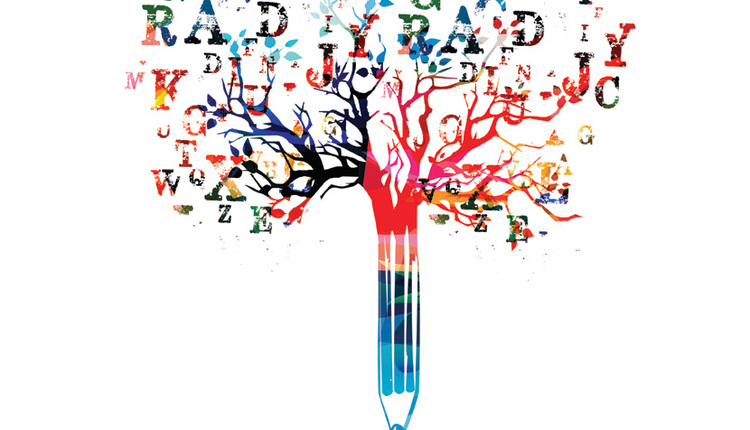
Image by: Tsokur, ©2017 Getty Images
By now, you’ve probably heard some rumblings about blockchain—the shared ledger concept that underlies bitcoin—and how it’s going to change the world. You may have even read an article or two on it and been left confused by the terminology and concepts. Block? Huh? Chain? Huh? Distributed ledger? Centralized ledger? Digital tokens? Smart contracts? Mining?
What’s crystal clear is that blockchain will be a game-changing, disruptive technology. It will impact industries, jobs (maybe your job), traditional transaction protocols, computing systems, security, and trust networks. Blockchain will transform traditional business “ledgers” into tools to record, enable, and secure an enormous range of transactions. The basic blockchain approach can be modified to incorporate rules, smart contracts, digital signatures, and an array of other new tools—but the technical capabilities are still in their infancy. Much like how Transmission Control Protocol/Internet Protocol (TCP/IP) gave rise to Internet v1.0, we’ll have to wait and see how blockchain continues to evolve.
Initially, blockchain will be used to lower transaction costs—such as eliminating clearinghouses, simplifying authentication, automating verification (delivery, transfer, etc.), and in many other ways. When transaction costs drop past invisible thresholds, there will be sudden, dramatic, hard-to-predict aggregations and disaggregations of existing business models.
The aim of bitcoin was to be decentralized (i.e., not have a point of control) and to be relatively anonymous. However, this design concept inflicted complexity and cost into the process. Not all blockchain ecosystems need to have the same mechanisms, especially if participants can be identified and trusted to behave.
Of particular note, there are dozens of government entities undertaking blockchain efforts, from an all-out push by the city of Dubai to a single application for land titles in Georgia. The use of blockchain may be a lynchpin for governments who are serious about reducing fraud and corruption within their ranks, which may well be a driving force behind their blockchain efforts.
Below is a sampling of both organizations and vendors that are committed to blockchain; it shows that these technologies are here to stay and will become a part of our everyday life—whether we know it or not.
Organizations Leveraging Blockchain
- The city of Dubai is planning to use blockchain as the basis for its economy, further enhancing this status. Blockchain has the potential to simplify recordkeeping and the transport of goods all over the world. “We have a very clear objective to make Dubai the capital of the blockchain industry,” Ms. Aisha Bin Bishr, director general of Smart Dubai, a government office charged with facilitating innovation, tells WSJ. “By 2020 we’ll have 100% of applicable government services and transactions happen on blockchain.”
- The Estonian government has been experimenting with distributed ledger technology for a number of years, using a form of technology known as Keyless Signature Infrastructure (KSI), developed by Estonian company Guardtime. KSI allows citizens to verify the integrity of their records on government databases. It also appears to make it impossible for privileged insiders to perform illegal acts inside government networks. This ability to assure citizens that their data is held securely and accurately has helped Estonia to launch digital services, such as e-Business Register and e-Tax.
- In Russ Stalters's session at DSF 2017, he asked which of the attendees were actively assessing blockchain. All of the financial institutions had active skunkworks projects (four) and two others indicated active assessment for specific purposes. In 2016, Fortune predicted that 15% of banks will be using blockchain applications by the end of 2017—that may have been ambitious, but given the cost of clearinghouses like Swift, it is also inevitable. Bank of America, JPMorgan, the New York Stock Exchange, Fidelity Investments, and Standard Chartered are testing blockchain technology as a replacement for paper-based and manual transaction processing in such areas as trade finance, foreign exchange, cross-border settlement, and securities settlement.
- The Republic of Georgia was the first to conduct land titles using blockchain.
- Australia is currently working on standards.
Vendors Committed to Blockchain
- Ethereum is a software running on a network of computers that ensures data and small computer programs called smart contracts are replicated and processed on all the computers on the network, without a central coordinator. The vision is to create an unstoppable, censorship-resistant, self-sustaining, decentralised world computer. Their official website has built little computer programs directly into blockchain that allowed financial instruments, like loans or bonds, to be represented, rather than only the cash-like tokens of the bitcoin. The Ethereum smart contract platform has hundreds of projects headed toward the market.
- Stellar.org is a nonprofit that aims to bring affordable financial services, including banking, micropayments, and remittances, to people who’ve never had access to them.
- Corda DLT is the financial grade distributed ledger that operates in strict privacy in an open, global network.
- Chain Core is an enterprise-grade blockchain infrastructure that enables organizations to build better financial services from the ground up.
- IBM, leveraging Hyperledger Fabric v1.0, is an open source, cross-industry blockchain technology.
- Accenture, Pricewaterhouse Coopers, Deloitte, and every other major consulting firm have created blockchain practices.
Jim Just is a Partner with IMERGE Consulting, Inc., with over 20 years of experience in business process redesign, document management technologies, business process management, and records and information management. Contact him at james.just@imergeconsult.com or follow him on Twitter @jamesjust10.






